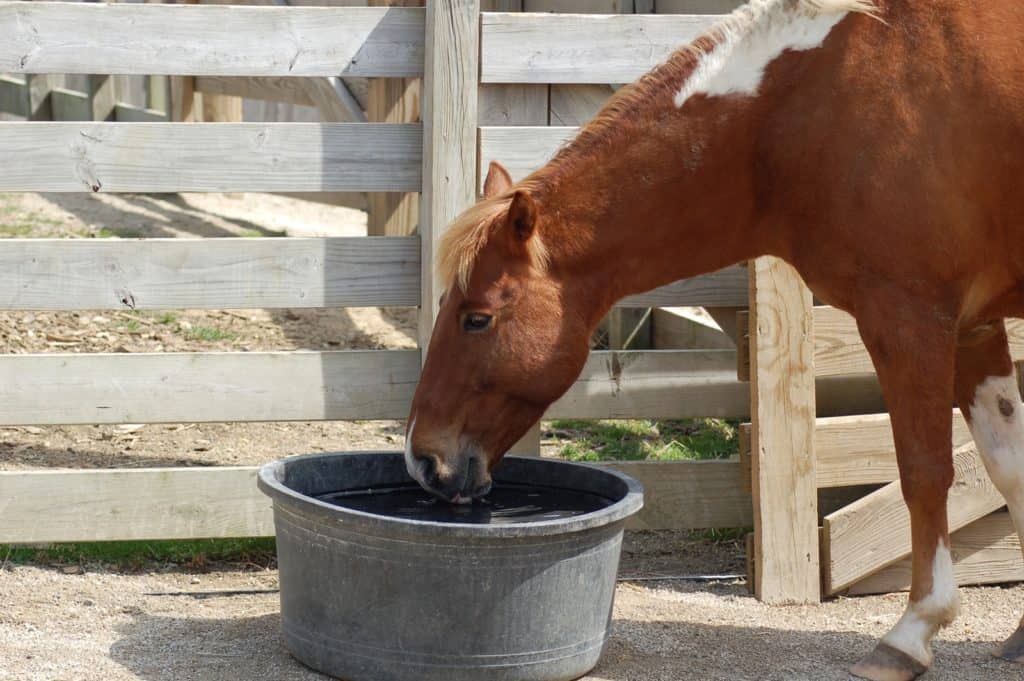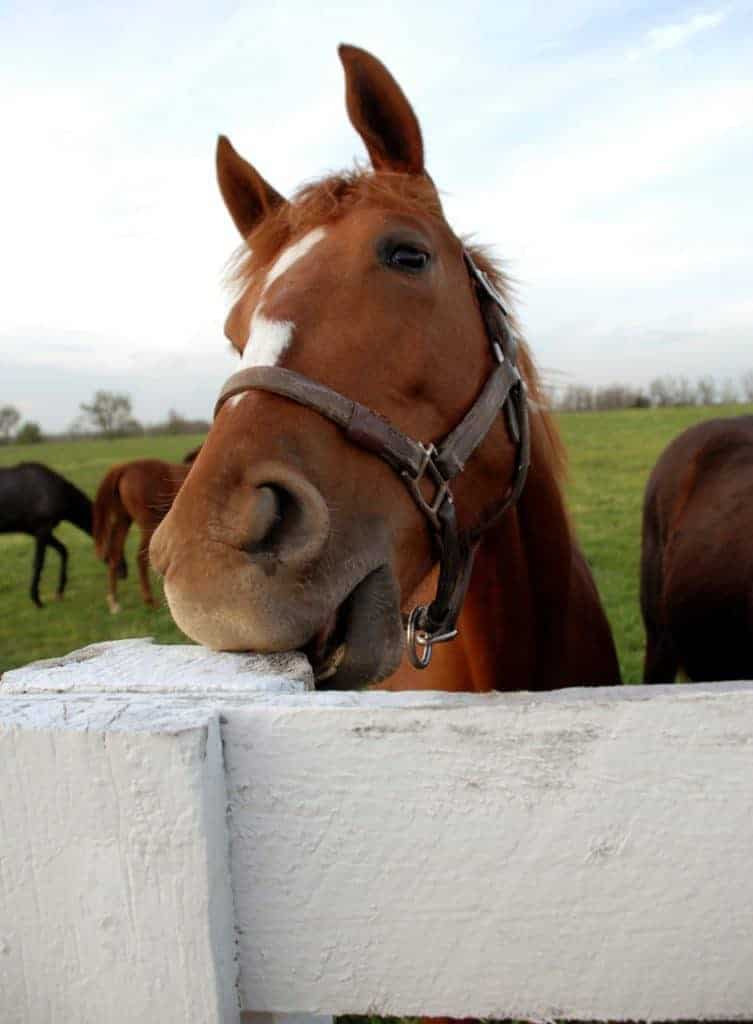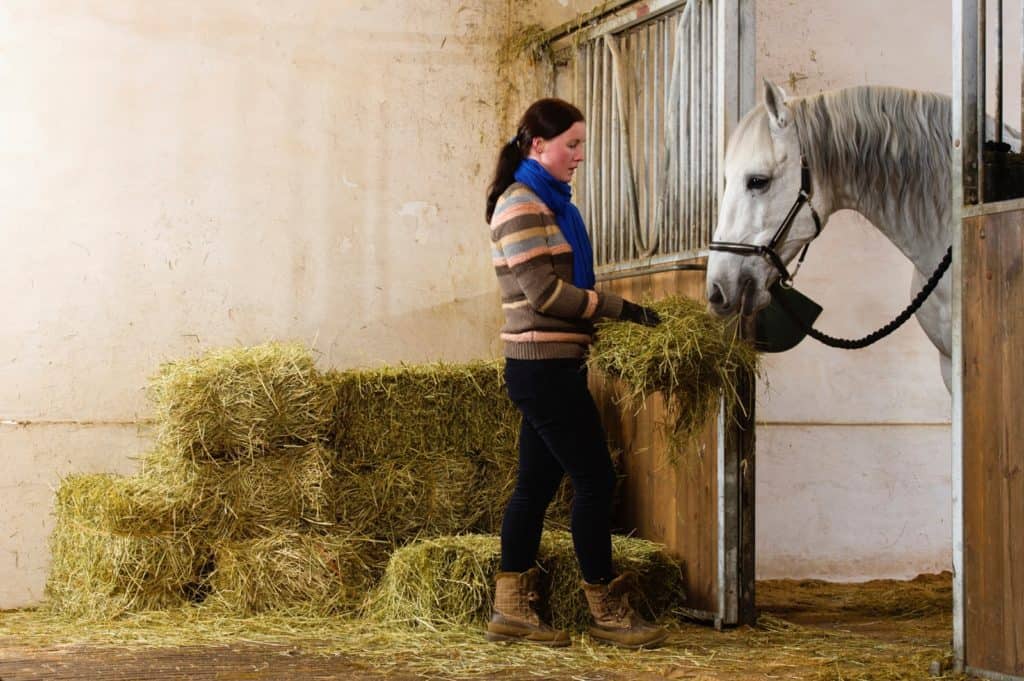
Water Bucket Blues
Why do horses tip water buckets, defecate in waterers, and/or dip hay in their water?
Proper feeding practices for foals, adult horses, and older horses

Why do horses tip water buckets, defecate in waterers, and/or dip hay in their water?

Anytime a horse is consuming unusual material, a thorough review of the diet is a good idea.

The Horse staff members have compiled and tested four homemade horse treat recipes.
My horses eat dirt, even with mineral and salt blocks available to them. Why do they do this?

Researchers found that steaming appears to increase horses’ consumption of good-quality hay.

Dr. Stacey Oke explains what omega fatty acids are and how they play a role in the horse’s diet.

Of 1,286 voters, 841 (65%) indicated they feed beet pulp to their horses.

Diet plays a very important role in managing insulin-resistant horses. Learn how you can use nutritional planning to manage this condition.

Taking preventative measures though diet and exercise are the best defenses against EMS development.

Dr. Amanda Adams shares information about how nutrition can impact the immune responses of geriatric horses.

Perilla mint is toxic to horses and the greatest risk of consumption is in late summer or early fall.

Hay replacers can be extremely useful, but they come with some guidelines to keep horses happy and healthy.

Of the 1,473 voters, 684 (46%) said that they feed their horses hay on the ground or do not use a hay feeder.

Tips to help owners make well-informed decisions when purchasing equine supplements.

Here’s what to consider if your athletic horse isn’t maintaining ideal body weight and condition.

Before you run out and pick up a bag, let’s have a look at the various ingredients used to make treats.
Stay on top of the most recent Horse Health news with
"*" indicates required fields